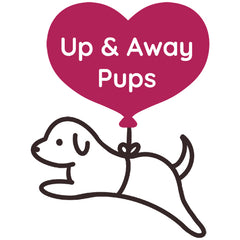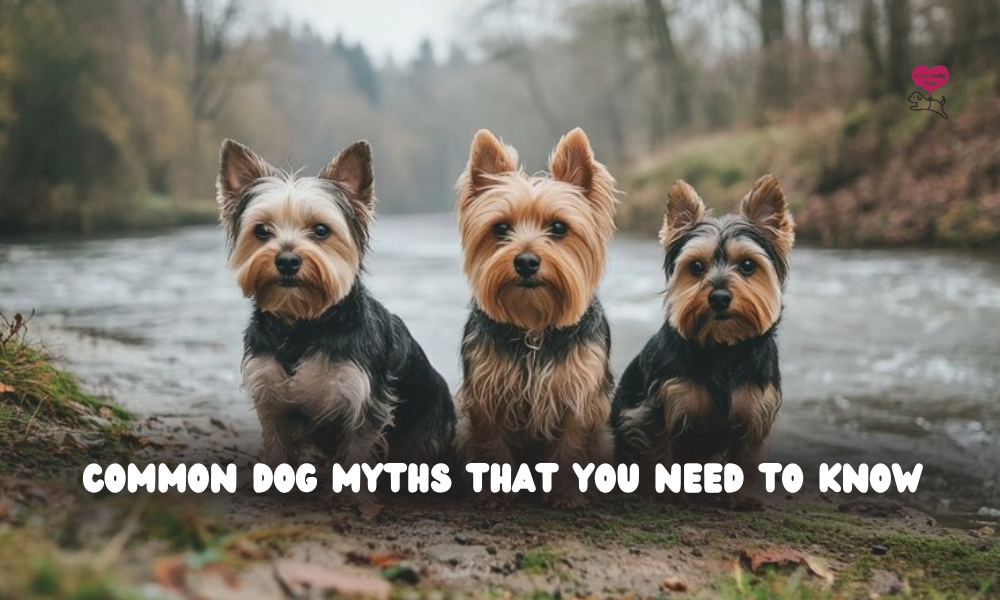Uncovering Common Myths About Dogs You Need to Know
It is a common fact that dogs are our best friends; however, being a pet parent, do you know everything about them? Starting from their eating habits to their nutritional needs and behaviors, several misconceptions and myths are related to your dogs and have been passed around over the decades. To understand more about your pup, especially if you have a small dog breed like a Mini Bernedoodle or a Pomeranian, we have enlisted a couple of common dog myths that are quite untrue. Let us find out more about them.
The Importance of Understanding Dog Myths
Knowledge about myths often leads to greater misunderstandings and inappropriate care that impacts dogs' happiness and health. Being aware of the common myths related to dogs' behavior and needs can help us render the best care for our furry companions. We will now check out the common myths and realities behind dog myths.
Myths To Know About Dogs
Now let us go through the major myths about dogs one by one and try to address them.
Dogs Are Color Blind
People believe that dogs are color blind, but conclusions have revealed that they have appreciable cones in their eyes. They can see in full color, but one will find that they cannot distinguish between such colors as green and red; these will look like grays and browns, with blue and yellow differences.
Dogs Eat Grass When They Are Sick
While, at times, dogs may chew on grass due to sickness or nausea, it is not a common practice in all dogs. Nevertheless, dogs are not voracious consumers of grass just for that peculiar purpose, as other reasons include boredom, displacement, and opportunity. In some cases, dogs get bored, and therefore, eating grass is just a form of entertainment. This is only a problem if the surface of the ground is the grass; the latter must not have been treated. Therefore, if your dog usually just munches on grass occasionally and is not adversely affected, then by all means, there is no reason to deny him his favorite pastime.
Wagging Tail Means a Friendly Dog
This is said to be a lie since a dog may wag its tail in joy when you take its toys away. Take it carefully; for a wrong understanding of this sign, you can be bitten. Wagging of a dog’s tail may indicate the dog is happy, excited, or alert, or the dog could be an angry dog preparing to attack. Communication through the body is rife in canines and very often can be confusing at best. Albeit constantly bear in mind the body language of the whole dog. Well, it is even more preferable not to touch or try to pet a dog that you have never met without first getting the owner’s permission. This is especially important for children who, for example, dream of getting close to every dog they come across.
Old Dogs Can't Learn New Tricks
Unlike what people often think, the idea that an old dog cannot learn new tricks is not true at all. All aged dogs can be trained using positive reinforcement training, which is the entitlement of positive punishment. For a senior dog, there are remedies to the problems they may have. Still, patience, consistency as well and motivation can help senior dogs learn new tricks and embrace changes in their environment.
Puppies Will Stop Chewing Once They Lose Their Baby Teeth
One of the most prominent misconceptions that can be found among dog owners is the belief that puppies will outgrow chewing by using their sharp teething baby teeth. Chewing is part and parcel of a dog's life, and they will still chew when they grow into adults. Classical methods of training include appropriate provision of chews, encouraging good chewing, and discouraging destructive chewing by substitution of correct chews. Positive training in regard to chewing enables the puppies’ healthy growth and promotion of proper chewing habits.
Dogs Only Need Physical Exercise
As much as a dog requires exercise, so does their brain need a workout. All dogs enjoy mental work, and this section proves that including the jobs that exercise their brains in the training regiments is very important. Treats, toys, and travel can engage a dog’s brain, and obedience can help avoid any bad behaviors.
Do Check Out : How to Take Care of Your Dog’s Mental Health
Dogs Understand Guilt
If you find that your dog seems guilty when it finds itself in trouble for a deed that was done energetically or one that was not good for you, then you need to reconsider your interpretation of the signs the dog gives. Dogs respond to their owners’ signals and the way the information is conveyed without feeling guilty about it. For a dog to experience guilt, they must be moral beings laden with the ability to discern between right and wrong, a feature peculiar to humans only. However, avoid scolding the perceived instigators for wrongdoing, as dogs respond better to the principle of positive training.
Small Dogs Are Less Energetic Than Large Dogs
There is a common misconception that toy/breed-specific dogs like Shih Tzu, Labradoodle, Teacup Maltese, etc, are naturally smaller, less active, or lazy compared to standard and giant breeds. That is why people have this misconception that the size of a food portion determines the energy level of the person. In fact, the activity level in dogs depends on breed-specific traits, temperament, genetic predispositions, daily activity schedules, and their general state of health. Of course, certain bigger dogs may be more energetic than some of the small breeds, but their activity and merriment characterize the latter.
Dogs Only Yawn When They Are Tired
Analysis of communication among dogs has shown that the yawn is one way that dogs may overcome feelings of anxiety. Your dog may yawn when it is not expected to be tired, including while it is playing or when other people are massaging it. They also use it to convey a message that they have had it up to here, and they bear no tolerance at all.
A Little Bit of Chocolate Is Fine
Chocolate also contains a compound known as theobromine, which is dangerous for dogs and cats. Do not feed your pet any chocolate, including cocoa and hot chocolate. If your dog seems to have ingested a lot of chocolate, particularly dark chocolate, then it is advisable to call your vet.
All Dogs are Natural Swimmers
It is also important to note that every dog does not swim – it is a myth that any dog is a natural swimmer. As we know, some dogs are born to run, and some of them to swim, although others can greatly admire water. Short-legged breeds such as French bulldogs or Miniature Dachshunds may struggle while swimming, but they wouldn’t necessarily be poor swimmers. It is always advisable to keep an eye on your dog around water and even if the pond has not been deepened, consider using a dog’s life jacket on your pet when going for a swim.
Conclusion
Exploring the myths and facts could and should be used to promote understanding which would improve the overall care of any dog and therefore increase the quality of life. Get only the right information and seek professional help from the veterinarian for any issues regarding your dog’s health as well as other issues. If you are planning on having a new family member, then visit the Up and Away Pups to see puppies for sale. They have different breeds of dogs and care about the well-being of their puppies, thus guaranteeing that customers receive their ideal pet.
Frequently Asked Questions
Let us now discuss a few of the rising queries among dog owners.
What Is an Unusual Fact About Dogs?
Dogs pant to help cool down the body’s internal temperature and also can sweat through paw pads. It also helps them add the extra advantage of a better grip.
What Can Dogs Tell About Humans?
They can distinguish six basic feelings: anger, fear, happiness, sorrow, surprise, and disgust. They respond in the same way as humans, only with changes in the rate of heartbeat and gaze.
Can Dogs Sense Illness or Death?
Some people have claimed that dogs can tell when a person has died, though the way in which dogs receive and interpret such information is still open to controversy and further analysis.
Why Do Dogs Sniff Your Face?
In the same way, your dog sniffs other dogs before getting closer, your fur baby will pick your human guest up with its snout just to learn more about them.
How Do Dogs Like to Be Touched?
Many dogs love getting stroked on their chests, shoulders, and tail base. However, everyone is different, and every dog is unique, which means that they have their favorites, so it is vital to monitor them and look for some signals.


